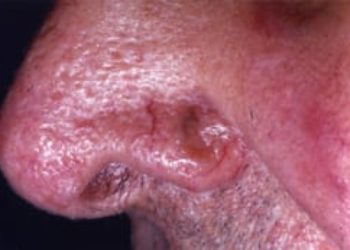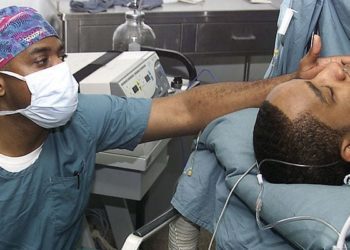Patient Perspective of Opioid Pain-Control Use After Mohs Micrographic Surgery
1. A theoretical risk of opioid addiction following surgery may affect patients’ choice of pain medications and thus, it is important to involve patients in decision-making discussions to determine their optimal pain control plan.
2. Higher opioid addiction risks resulted in patients favouring over-the-counter medication rather than opioid prescription, regardless of pain levels.
Evidence Rating Level: 1 (Excellent)
Study Rundown: Mohs micrographic surgery (MMS) is a procedure used to treat skin cancer, often leading to patients fulfilling short-term opioid use prescriptions for pain control. The risk of post-MMS long-term opioid use and patient preference for pain medications is unclear. Therefore, this prospective study investigated patient pain medication preferences post-MMS, including how patients weighed the potential benefit of improved pain control compared to the risk of long-term opioid addiction. Half of the respondents stated that they had a concern regarding possible opioid addiction post-MMS, and 34% stated that they would never consider opioid pain-control use, regardless of pain levels. Across all scenarios, over-the-counter medication (OTC) only was preferred over OTC plus opioids; however, when the theoretical risk of addiction was low, half of the respondents indicated they would choose OTCs plus opioids if the pain level was high enough. This study’s respondent group may not be representative of the entire population as there was a high percentage of healthcare workers with relatively high education and household income. Furthermore, this study was conducted at one urban centre, and the discrete choice experiment may not have included all possible risks and benefits that would be important to the respondents.
Click to read the study in JAMA Dermatology
Relevant Reading: Rates of Opioid Prescriptions Obtained After Mohs Surgery
In-Depth [prospective cohort]: The Hospital of the University of Pennsylvania approved this prospective discrete choice experiment which was conducted at a single academic medical center from August 2021 to April 2022. Patients undergoing MMS and their accompanying support person (over the age of 18) completed the survey in the clinic waiting area. A stated choice survey included a description of each adverse effect and participants were asked to rate how they viewed the importance of each effect (i.e., important, neutral, or not important). The discrete choice experiment included 12 different scenarios requiring the participant to choose whether they would want “opioids plus over-the-counter medication (OTC)” or “OTC only”. The primary outcome of the study was the pain level that resulted in an equal distribution between OTCs plus opioids and OTC-only. In total, 295 respondents (mean [SD] age, 64.6 [13.1] years; 174 [59%] were female; race and ethnicity were not considered) completed the discrete choice experiment, and 147 (50%) of respondents had a concern regarding possible opioid addiction with 101 (34%) stating that they would never consider using opioids, regardless of pain level. For all 12 scenarios, 224 (76%) respondents preferred only OTCs compared to OTCs plus opioids for post-MMS pain control. However, when the theoretical addiction risk was low, half of the respondents stated they would choose OTCs plus opioids if the pain level was at least 6.5/10 (90% CI, 5.7-7.5). When the addiction risk was higher (2%, 6%, or 12%), respondents were more likely to prefer only OTCs, regardless of high pain levels. Overall, the results indicated that perceived opioid addiction risk affects patients’ pain medication choices following MMS.
Image: PD
©2023 2 Minute Medicine, Inc. All rights reserved. No works may be reproduced without expressed written consent from 2 Minute Medicine, Inc. Inquire about licensing here. No article should be construed as medical advice and is not intended as such by the authors or by 2 Minute Medicine, Inc.









